Recap: Digital Public Goods Alliance 2023 Annual Members Meeting in Addis Ababa
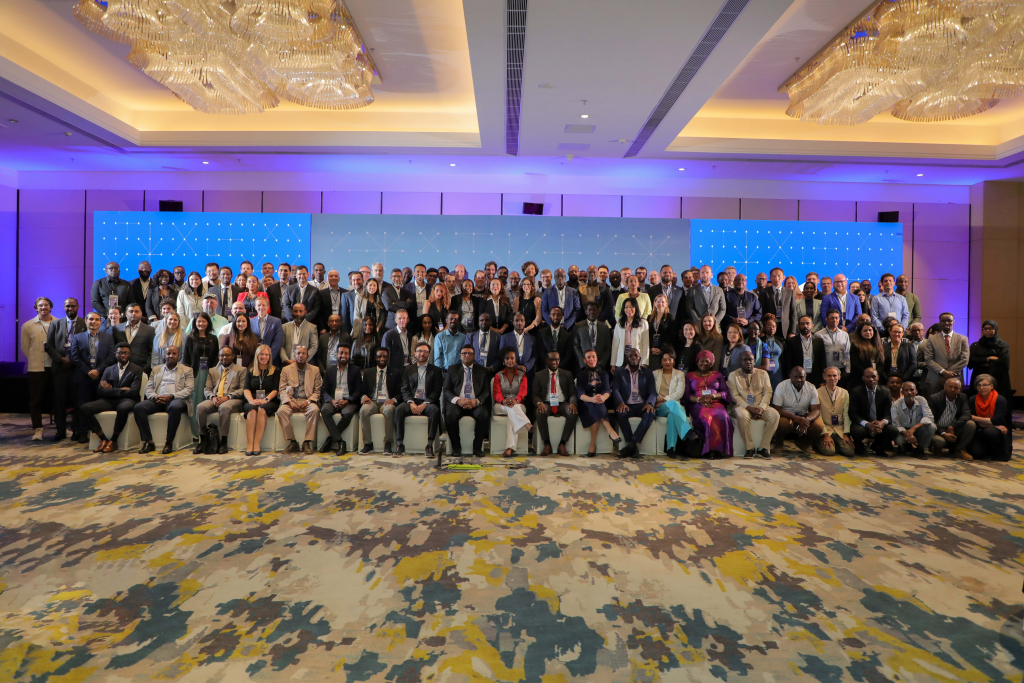
From 13-16 November, Digital Public Goods Alliance members and key stakeholders came together in Addis Ababa, Ethiopia for our 2nd annual members’ meeting. From the DPGA Secretariat we want to provide a sincere thank you to everyone who travelled near and far, showing up with interest, bringing questions, representing your experiences, and sharing your learnings with the wider DPG community.
Last week, nearly 150 people came together in Addis Ababa to connect as a community of change-makers dedicated to discussing a range of DPG topics, and identify new opportunities for synchronicity and collaboration. There were 63 organisations present, including multilaterals, funders, think tanks, civil society organisations, and product owners alongside delegates from 15 countries. In total, the DPGA Secretariat coordinated 36 hours of programming over 4 days which included networking, workshops, presentations, panels and, of course, karaoke.
The 2023 Annual Members Meeting was co-hosted by the Government of Ethiopia’s Information Network Security Administration (INSA) and provided a platform for DPGA members to find common ground, foster new partnerships, and enhance their efforts in leveraging digital public goods for addressing urgent development needs and global challenges. We are grateful for our diverse membership and stakeholder base, which brings together perspectives from technologists, policymakers, civil society leaders, governments, and the private sector. The meeting highlighted our unified commitment to advancing open-source solutions, accessible to everyone. One theme that emerged: DPGs are not just tools for addressing global challenges like poverty, education, healthcare, and climate change; they are powerful catalysts for transformative change worldwide.
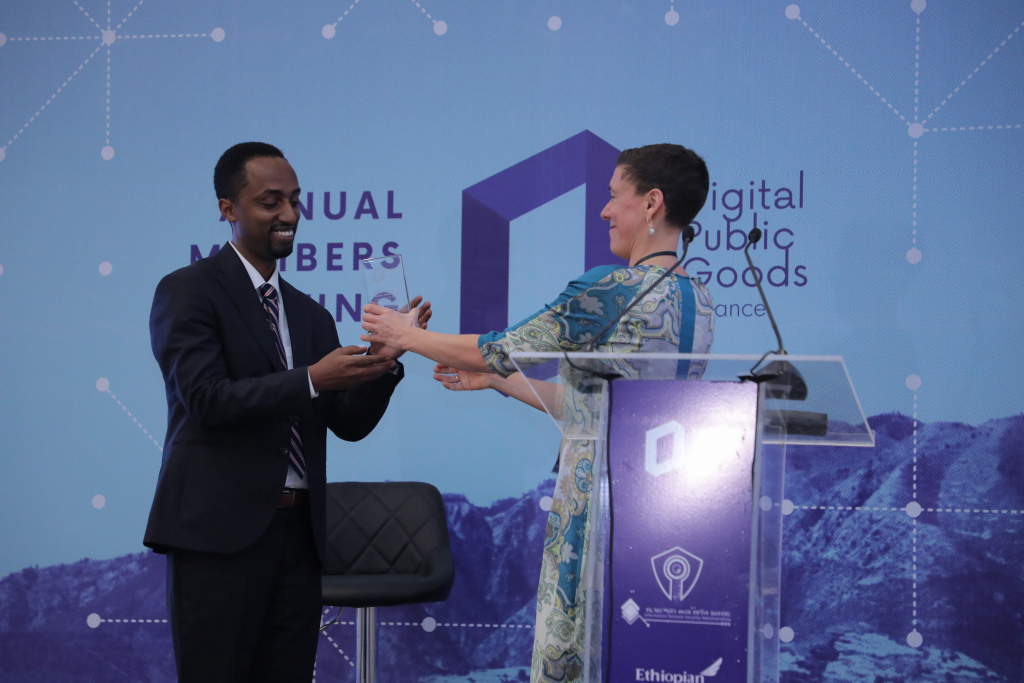
The event kicked off with opening remarks from Yodahe Zemichael, Executive Director of National ID Ethiopia, who shared why Ethiopia is driven to not recreate technologies that already exist. This set the stage for the members’ meeting, and highlighted why countries are choosing to use DPGs for collaborative efforts that can have an impact across geographies. A sincere thank you to INSA for co-hosting this year’s members’ meeting and creating a welcoming forum for sharing perspectives.
DPGA Strategic Targets
During the week, the DPGA launched an updated five year strategy which includes dedicated targets related to: digital public infrastructure via the 50-in-5 campaign, climate action, addressing the spread of mis- and dis-information, and how DPGs can be used for resilience amidst urgent global challenges. The updated targets were informed through a consultation process that started in early 2023, and was open to all DPGA members. These targets were evident throughout the week in the themes of the workshops and sessions.
Capacity Development, DPG Maturity, Sustainability, and Architecture
The meeting placed a significant emphasis on the maturity, sustainability, and architectural design of DPGs with multiple sessions that touched on the sustainability of DPGs. The discussions, which included panels of funders and DPG product owners, highlighted the necessity of sustaining a DPG over time, which extends beyond mere code development to include the cultivation of a vibrant community of contributors and a well-articulated product roadmap. These aspects are crucial for the long-term viability of DPGs.
In general, participants at the meeting found that capacity development is hugely underestimated. Without capacity, we are unable to sustain DPGs, therefore making it an underlying condition, almost like a foundational infrastructure. UNICEF, eGov Foundation and Singapore shared their experiences with capacity building in a dedicated session.
For their part, funders emphasised the need for a shift from traditional, country-specific grants to inclusive, technical engagement models. The importance of strategic frameworks for scaling DPGs was highlighted, acknowledging that while DPGs are cost-effective, they are not cost-free. Innovative revenue models were a focal point, with examples like training and certification programs that empower local companies to contribute to the DPG ecosystem as implementers. This approach creates a sustainable revenue stream while reducing the dependency on recurring revenue sources.
Related to ensuring scalability, developers and implementers discussed maintaining high-quality products while facing the challenge of tailoring products to different country needs and advocating for DPGs to non-technical decision-makers. The pursuit of self-sustainability beyond donor reliance was a key topic.
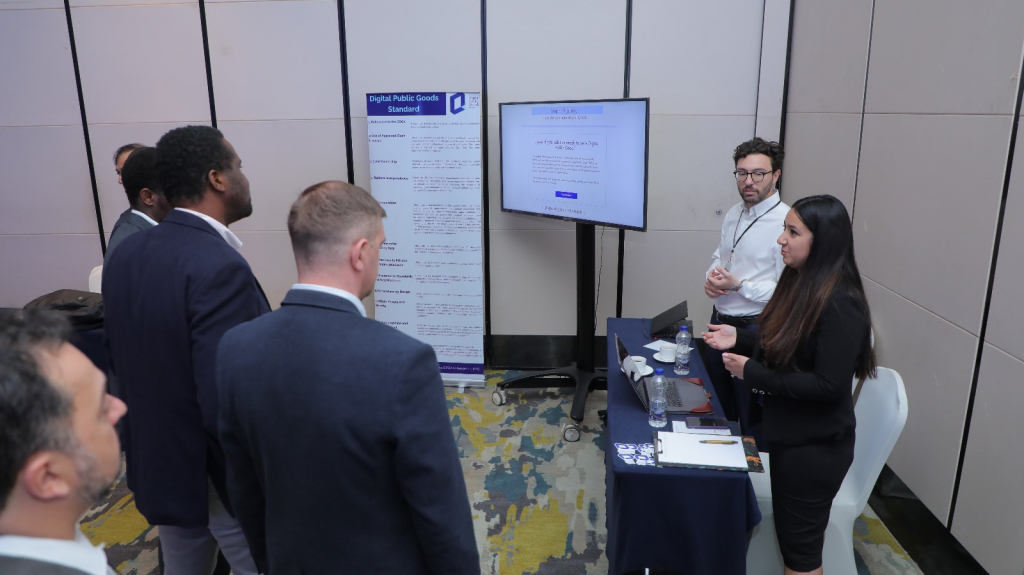
DPGs for DPI
Countries including Singapore, Norway, India, and Sierra Leone shared their experiences and insights on architecting DPI. These country perspectives highlighted diverse approaches to DPI and fostered a shared learning environment to accelerate the implementation of effective digital strategies. At the members’ meeting we also announced a new DPGA member, the Government of Moldova, who will be building their DPI using DPGs as part of their membership, including piloting DPGs in the areas of digital IDs and payments.
In close follow-up to the formal launch of 50-in-5 on November 8, there were two dedicated sessions on 50-in-5 at the members’ meeting. The first was a session for First-Mover countries to discuss where they are in their digital public infrastructure implementation journeys, and lay the groundwork for potential synergies and forms of collaboration. The second was an overview session to share more about the campaign and how the DPG community can potentially support campaign efforts, featuring perspectives from Ethiopia, Togo, the Centre for DPI, and the World Bank. Additionally, Malawi and the Dominican Republic joined as First-Mover countries, meaning 13 countries have now joined the campaign within its first week.
In addition to both of these workshops, the UN Envoy on Technology hosted a workshop as part of their efforts to enshrine and embed universal safeguards for DPI design and implementations worldwide. The Universal Safeguards for DPI Initiative launched in September of this year and is a commitment to protecting everyone, everywhere, as well as our planet while accelerating the achievement of the SDGs.
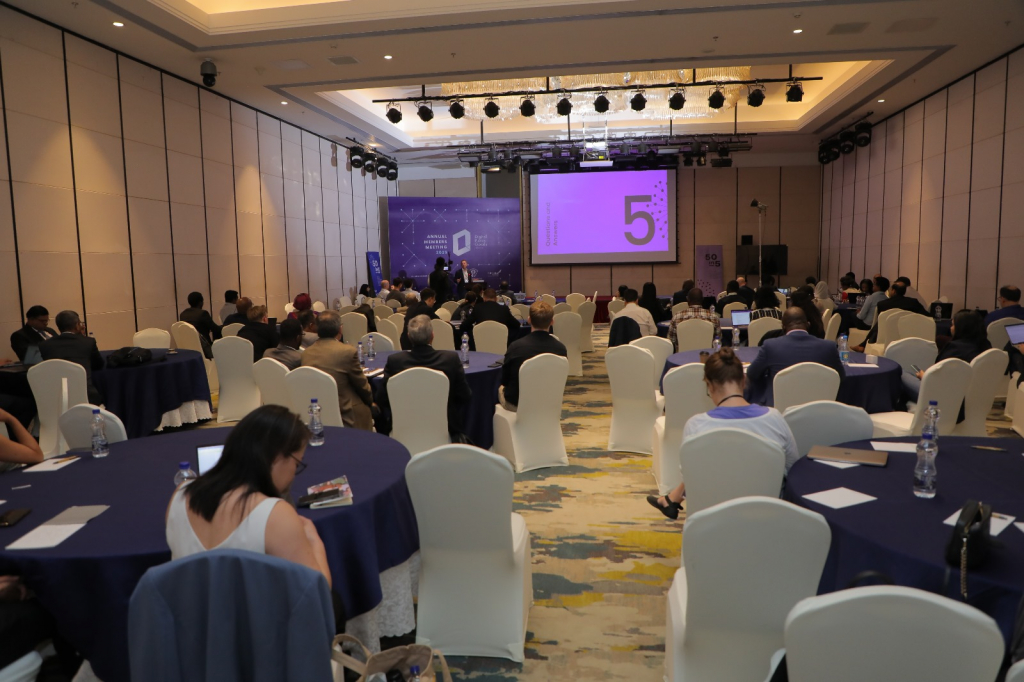
DPGs for Interoperability
DPGs for interoperability was a particular theme exemplified by the GovStack Sandbox project. This project demonstrated the successful integration of various DPIs and DPGs into a coherent and functional system, guided by an interoperability framework. The journey from procurement to implementation of various DPGs, such as MOSIP, Mifos, X-Road, and OpenIMIS, was shared, showcasing their roles in powering exemplary citizen services within the eGovernment sector. This segment underscored the critical importance of interoperability in creating efficient and user-friendly digital public services, highlighting the transformation from openly available Building Block specifications to interoperable software implementations.
DPGs for Urgent Challenges
The meeting also addressed the role of DPGs in tackling urgent global challenges, including the evolving open-source AI debate, mis- and disinformation, and climate change. This included the complexity of understanding and defining AI systems as digital public goods and their potential to democratise AI development, AI benefits and AI governance. We explored the greyscale between proprietary and open-source systems, the challenge of controlling ethical downstream use and the need for a layered governance approach as well as guardrails and safeguards for responsible open-source AI systems that serve the Sustainable Development Goals. Stakeholders leveraging open source to strengthen information integrity were present at the meeting including Ushahidi and the Open Knowledge Foundation, both of which are working to ensure that data integrity is upheld in situations that can spur the spread of mis- and disinformation. Each of them presented on what needs to be done to increase resilience and trust in elections.

DPGs for Climate Change
Finally, the meeting highlighted the role of DPGs in climate action, including UNDP’s exploration of payments for ecosystem services, showcasing the potential of digital solutions in mitigating climate change and promoting environmental sustainability by taking a DPG approach. This was then showcased by the Government of Brazil’s efforts to leverage their Rural Environmental Registry which is a consolidated database for control, monitoring, environmental and economic planning to combat deforestation.
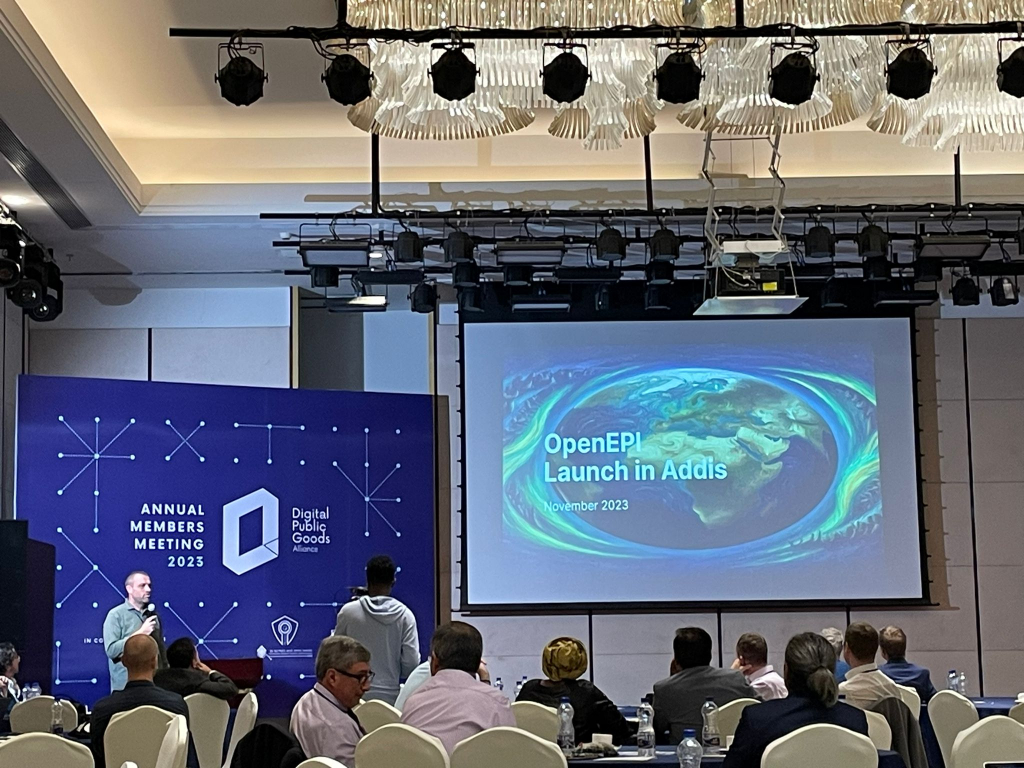
This workshop also served as the backdrop for the launch of the Open Earth Platform Initiative (OpenEPI) by the Norwegian Agency for Development Cooperation alongside Knowit, Capto, Open Futures, and Creative Commons. OpenEPI is an open, global digital platform that will help support and kickstart the creation of innovative solutions for climate and nature resilience. Their mission is to support local innovation that is fuelled by a global platform of open data, technology and AI.
As with any conference, there are many moments that we weren’t able to capture in this summary. Please continue to follow us on social media where we will amplify the incredible work of this community.
It is only once a year that we have an opportunity to join together with our full membership. Here, we forge meaningful relationships, partnerships, and collaborations that we carry with us throughout the year. As the DPGA, we are honoured to be able to host this incredible (and growing) group of members and stakeholders and can’t wait to do it again next year.
Until next time!
We share immense gratitude for the companies, governments and organisations that helped make this meeting possible. Particularly, the Government of Ethiopia’s Information Network Security Administration; Ethiopian Airlines; the Skylight Hotel; and our designer Richa Bhargava.